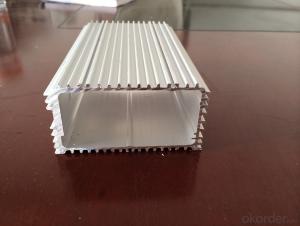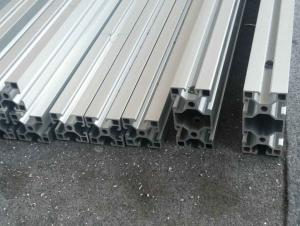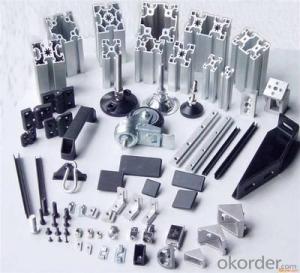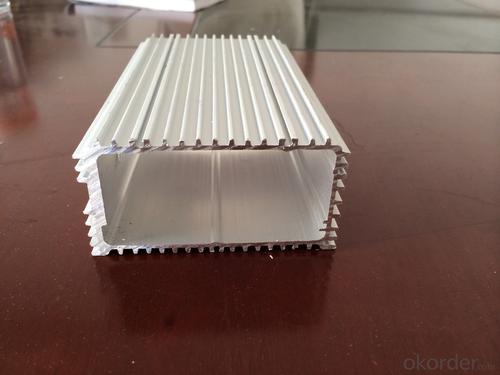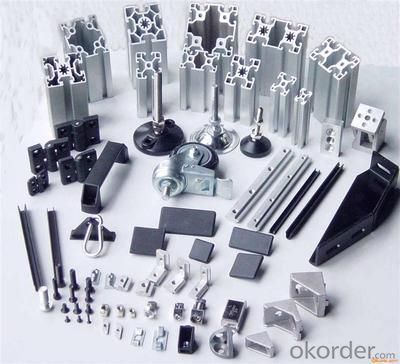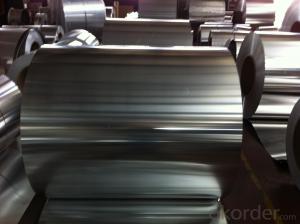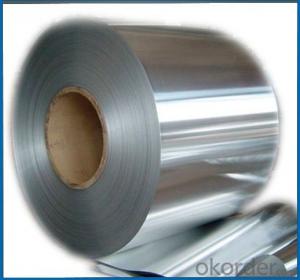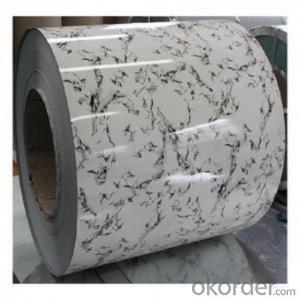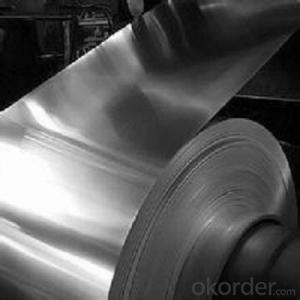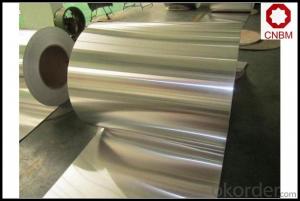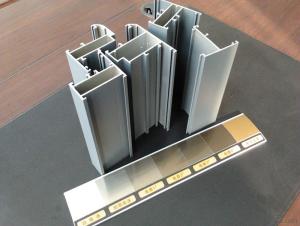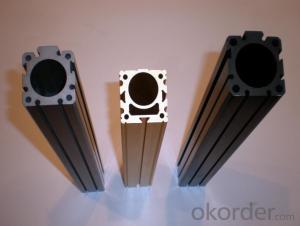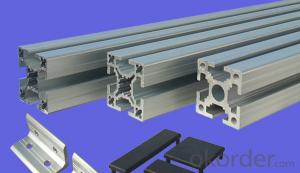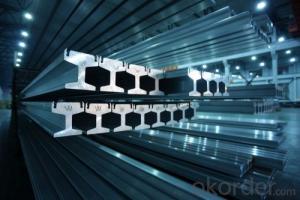Aluminum Coil Home Depot Aluminium Vast Profile for Windows and Doors
- Loading Port:
- Shanghai
- Payment Terms:
- TT OR LC
- Min Order Qty:
- 15 m.t.
- Supply Capability:
- 2000 m.t./month
OKorder Service Pledge
OKorder Financial Service
You Might Also Like
Specification
Structure of Aluminium Vast Profile for Windows and for Doors Description:
Coated aluminum coil/sheet are of a wide range of colors, which gives wonderful appearance no matter in residential and commercial constructions of great exhibition centers.
The coated aluminum coil/sheet have been widely used in the fields of construction and decoration( garage doors, ceiling etc.), electronic appliances, lighting decoration, air-condition air pipes, sandwich panels and drainages etc.
Main Features of the Aluminium Vast Profile for Windows and for Doors:
1) High flexibility
2) Impact resistance
3) Excellent weather-proof durability
4) Anti-ultraviolet
5) High erosion resist
Images of the Aluminium Vast Profile for Windows and for Doors:
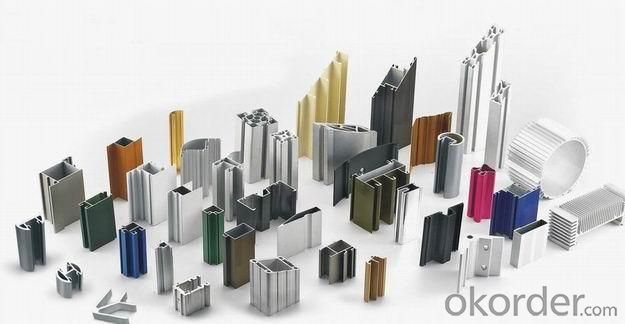
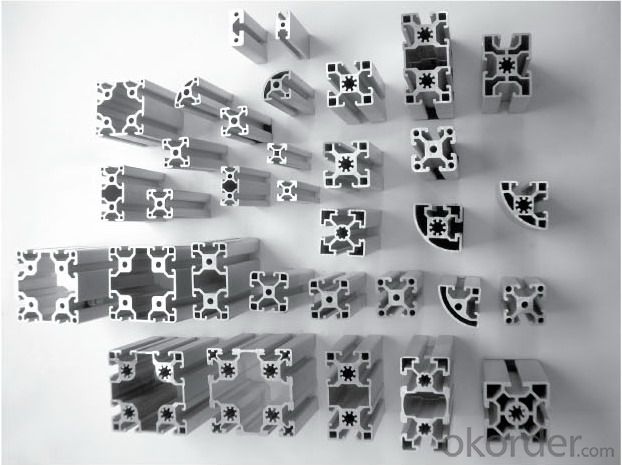
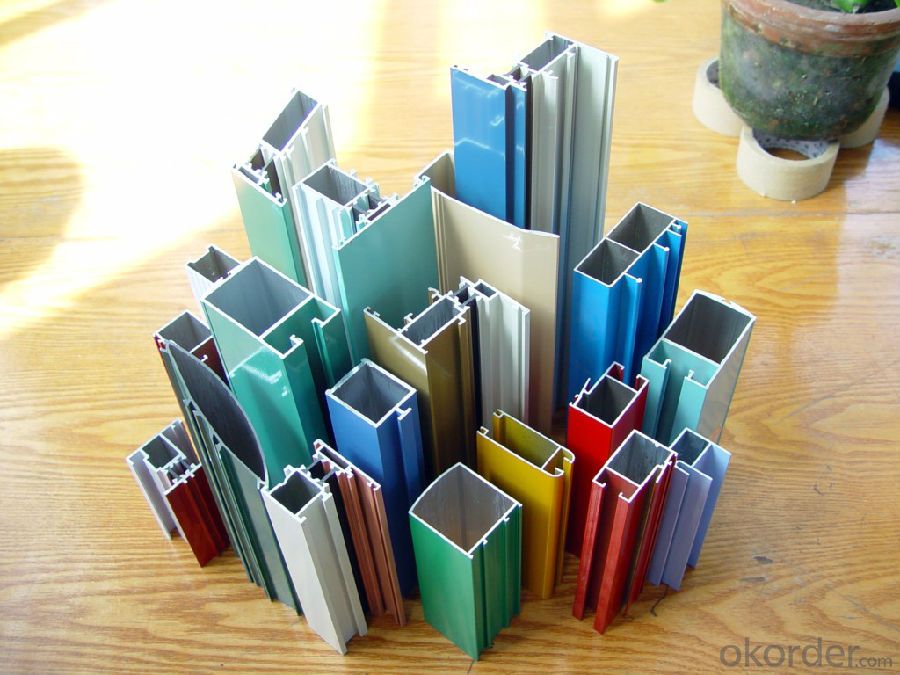
Aluminium Vast Profile for Windows and for Doors Specification:
Alloy | A1100,A3003,A1050,A8011 etc |
Temper | H16,H18,H24 |
Thickness | From 0.024mm to 1.2mm |
Width | Standard width:1240mm |
Special width:1300mm,1520mm,1570mm,1595mm | |
Diameter | Standard dia:1200mm |
Interior dia:150mm,405mm,505mm | |
Weight | 2.5 T/coil,3.0 T/coil |
Coating | PE, PVDF, AC |
Surface | Embossed, mill finish, coated |
Color | AS to code RAL |
Gloss | 10-90%(EN ISO-2813:1994) |
Coating Thickness | PE: more than 18 micron |
PVDF: more than 25 micron | |
Coating Hardness (pencil resistance) | More than 2h |
Coating adhesion | 5J(EN ISO-2409:1994) |
Impact Resistance | No peeling or cracking(50 kg/cm,ASTMD-2794:1993) |
Flexibility (T-bend) | 2T |
MEK resistance | More than 100 |
FAQ:
a.What is monthly capacity
---CNBM is one stated own company and our monthly capacity is about 2000tons.
b. Now which countries do you export your goods?
---Now we export to South East Asia,Africa, North America,South America ect.
- Q: Can aluminum coils be used in the production of consumer goods?
- Yes, aluminum coils can be used in the production of consumer goods. Aluminum is a versatile and lightweight material that offers several advantages for consumer goods manufacturing. It is highly corrosion-resistant, making it suitable for products that are exposed to moisture or outdoor elements. Additionally, aluminum coils can be easily formed and shaped, allowing for customization and efficient production processes. Aluminum is commonly used in various consumer goods such as kitchen appliances, automotive parts, packaging materials, and electronic devices. Its properties make it an ideal choice for manufacturers looking to produce durable, high-quality consumer goods.
- Q: 1mm how much is one square meter for aluminum rolls?
- The price of aluminum sheet is calculated according to the price of aluminum ingot + processing fee (aluminum plate state), and the specific price is also different according to the size and size of aluminum sheet.
- Q: Can aluminum coils be used for decorative purposes?
- Yes, aluminum coils can be used for decorative purposes. Aluminum is a versatile material that can be easily shaped and manipulated, making it suitable for a wide range of decorative applications. Aluminum coils are often used to create decorative trim, accents, and borders in various industries such as architecture, interior design, and automotive design. They can be painted or coated with different finishes to enhance their visual appeal and match the desired aesthetic. Due to their lightweight nature and durability, aluminum coils are also commonly used for decorative purposes in outdoor settings, such as garden ornaments, sculptures, and signage. Overall, aluminum coils offer a cost-effective and aesthetically pleasing option for incorporating decorative elements into various projects.
- Q: I would like to know why the ionic substance aluminium oxide doesn't dissolve in water.
- It does dissolve, but only slightly. It has a solubility of about 0.0001 under atmospheric pressure, it doesn't dissolve because the aluminium is extremely strongly bonded to oxygen, so it can't dissociate very much at all. If you want to dissolve aluminium oxide, you should use an alkaline solution.
- Q: What are the tensile strength properties of aluminum coils?
- The tensile strength properties of aluminum coils can vary depending on the specific alloy and temper of the aluminum. Generally, aluminum has a good tensile strength, ranging from 70 to 700 MPa (megapascals). The specific tensile strength of aluminum coils can be determined through material testing and analysis.
- Q: Can aluminum coils be used for pharmaceutical packaging?
- Yes, aluminum coils can be used for pharmaceutical packaging. Aluminum is a popular choice for pharmaceutical packaging due to its various beneficial properties. It is lightweight, corrosion-resistant, and has excellent barrier properties, making it ideal for protecting pharmaceutical products from external factors such as moisture, oxygen, and light. Aluminum coils can be easily formed into different shapes and sizes, providing versatility for packaging needs. Additionally, aluminum is non-toxic and non-reactive, ensuring the safety and integrity of pharmaceutical products.
- Q: This question asks for the uses or applications of aluminum coil in various industries or contexts.
- <p>Aluminum coil has a wide range of applications due to its lightweight, corrosion resistance, and high thermal conductivity. It is commonly used in construction for roofing and siding, in the automotive industry for parts and heat exchangers, and in the packaging industry for food and beverage cans. Additionally, aluminum coil is utilized in electrical applications such as transformers and electrical wiring due to its excellent conductivity. It is also employed in the manufacturing of household appliances, furniture, and various consumer goods. The coil's malleability makes it suitable for forming into various shapes and sizes, enhancing its versatility across different sectors.</p>
- Q: How do aluminum coils contribute to improved indoor air quality?
- Aluminum coils contribute to improved indoor air quality by efficiently removing heat and moisture from the air, preventing the growth of mold and mildew. Additionally, aluminum coils are resistant to corrosion, reducing the risk of air contamination caused by rust or other harmful particles.
- Q: Are aluminum coils compatible with other materials?
- Yes, aluminum coils are compatible with various materials, including steel, copper, and other non-ferrous metals. They can be used in conjunction with different materials to enhance their performance and provide various industrial applications.
- Q: What are the different width tolerances for aluminum coils?
- The width tolerances for aluminum coils can vary depending on the specific requirements and industry standards. Generally, the tolerances range from +/- 0.005 inches to +/- 0.25 inches. However, specific applications may have more stringent requirements or looser tolerances depending on the intended use of the aluminum coils. It is important to consult the relevant specifications and guidelines provided by the manufacturer or industry standards to determine the exact width tolerances for a particular application.
Send your message to us
Aluminum Coil Home Depot Aluminium Vast Profile for Windows and Doors
- Loading Port:
- Shanghai
- Payment Terms:
- TT OR LC
- Min Order Qty:
- 15 m.t.
- Supply Capability:
- 2000 m.t./month
OKorder Service Pledge
OKorder Financial Service
Similar products
Hot products
Hot Searches
Related keywords
